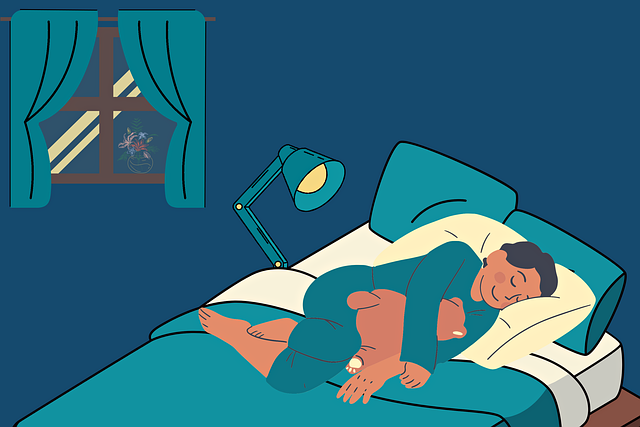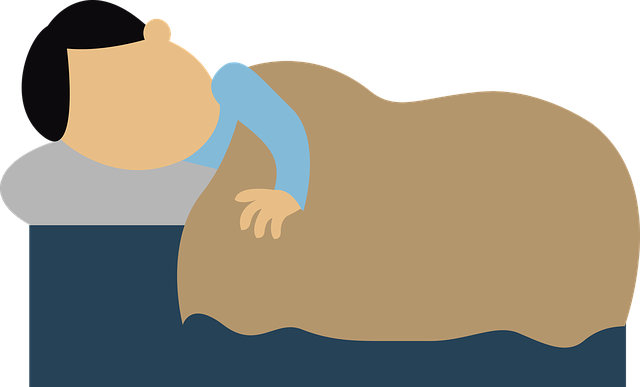The text explores the effects of taking 2000 mg of melatonin, a hormone regulating sleep-wake cycles. While short-term use under professional supervision is generally safe, high doses can lead to side effects like drowsiness, headaches, and disrupted natural hormone production. Despite potential benefits such as improved sleep quality, reduced anxiety, and enhanced cognitive function, consulting healthcare professionals before starting 2000 mg melatonin is crucial due to risks of circadian rhythm disruption, sleep disturbances, and interactions with medications.
“Unraveling the Impact of 2000 mg Melatonin: A Comprehensive Guide
Melatonin, often dubbed ‘the sleep hormone,’ plays a pivotal role in regulating our circadian rhythms. In this guide, we delve into the effects of consuming 2000 mg melatonin, exploring its potential benefits for insomnia and jet lag relief. We also shed light on risks and considerations, as understanding the dose is crucial for safe and effective use. From exploring melatonin’s functions to assessing high-dose impacts, this article offers a detailed look at what happens when you take 2000 mg of melatonin.”
- Understanding Melatonin: The Sleep Hormone and Its Functions
- Exploring the Effects of 2000 mg Melatonin Dosage
- Potential Benefits, Risks, and Considerations for High-Dose Melatonin Consumption
Understanding Melatonin: The Sleep Hormone and Its Functions

Melatonin is a hormone naturally produced by our bodies, primarily by the pineal gland in the brain. It plays a pivotal role in regulating our sleep-wake cycles and has become a popular supplement, especially for those seeking better sleep quality. The term ‘sleep hormone’ is often used to describe melatonin due to its crucial involvement in initiating and maintaining sleep.
When you consider taking 2000 mg of melatonin, it’s essential to understand that this dose is significantly higher than what your body typically produces. Such high doses can have potent effects on your body’s natural rhythm and may lead to significant changes in sleep patterns. While melatonin supplements are generally safe for short-term use under professional supervision, prolonged or excessive use may disrupt the body’s internal clock, causing potential side effects like daytime drowsiness, headaches, and increased appetite.
Exploring the Effects of 2000 mg Melatonin Dosage

Taking a 2000 mg dose of melatonin can have significant effects on the body, particularly in regulating sleep patterns and promoting relaxation. Melatonin is a natural hormone that plays a crucial role in our circadian rhythms, helping to control when we feel sleepy and alert. When taken at such a high dosage, it can dramatically shift these rhythms, leading to deeper and more restorative sleep.
However, exploring the 2000 mg melatonin dosage also highlights potential risks and side effects. Excessive melatonin intake may cause daytime grogginess, headaches, and even disrupt natural hormone production over time. It’s important for individuals considering such high doses to consult healthcare professionals first, as personalized advice based on specific health needs is essential.
Potential Benefits, Risks, and Considerations for High-Dose Melatonin Consumption

High-dose melatonin consumption, such as taking 2000 mg, can have both potential benefits and risks. On the positive side, melatonin is a powerful antioxidant that may support sleep quality, reduce anxiety, and boost cognitive function. It’s also been studied for its possible role in protecting against neurodegenerative diseases and improving mood disorders. Additionally, some research suggests that high doses could aid in immune system regulation and cellular repair.
However, considerations are crucial before diving into such high-dose melatonin intake. Excessive melatonin can disrupt the body’s natural circadian rhythm, leading to grogginess, nausea, and sleep disturbances. Long-term use may also increase the risk of adverse effects like headaches, dizziness, and dependence. It’s important to note that melatonin interacts with various medications, so consulting a healthcare professional before taking 2000 mg or any significant dose is essential. Individual responses vary, and what works for one person might not be suitable for another.
After exploring the effects of 2000 mg of melatonin, it’s clear that this high dosage can significantly impact sleep and overall well-being. While it may offer potential benefits for certain individuals, such as rapid insomnia relief and improved circadian rhythm regulation, it also carries risks including daytime drowsiness, increased blood pressure, and potential hormone disruptions. It’s crucial to approach 2000 mg melatonin consumption with caution and consult a healthcare professional before attempting such a high dose. Always remember, personalized needs vary, and finding the right balance for melatonin supplementation is key to reaping its advantages safely and effectively.

